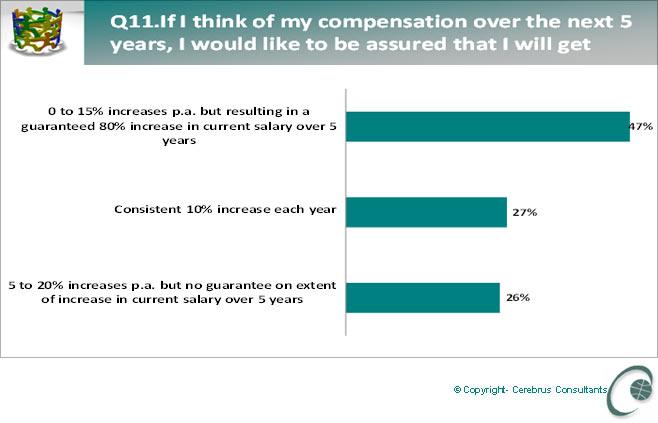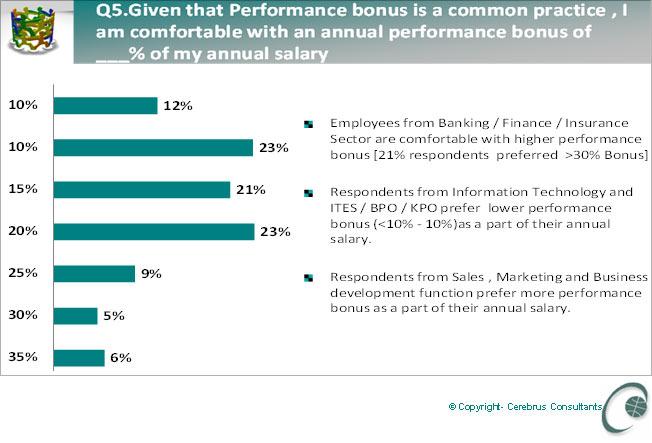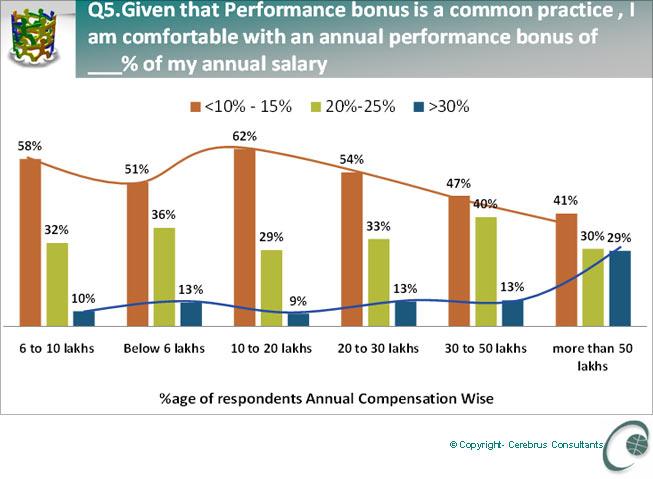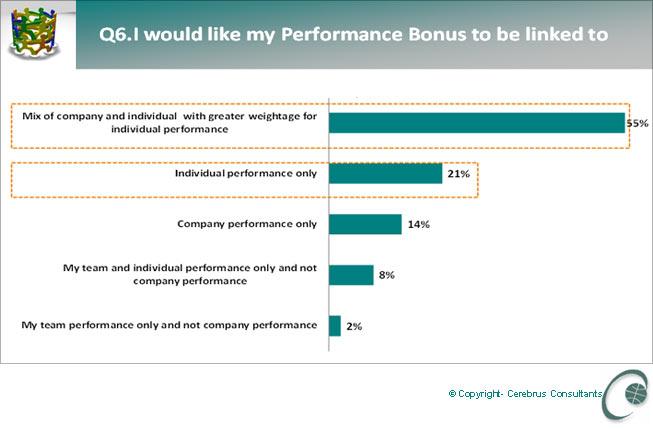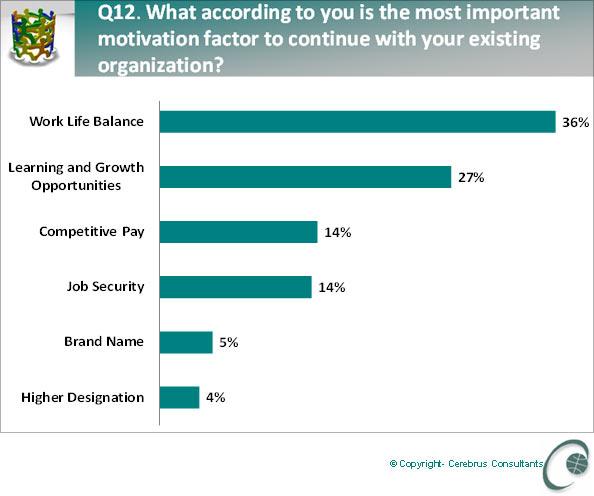 | « Back to article | Print this article |
 In a survey, HR consulting firm Cerebrus Consultants sought the views of employees through an online survey hosted by rediff.com. Here are the key findings of this pioneering study.
In a survey, HR consulting firm Cerebrus Consultants sought the views of employees through an online survey hosted by rediff.com. Here are the key findings of this pioneering study.
For most employees, compensation is a subject very close to the heart and one that's constantly debated. The last few years have seen salaries in corporate India increasing dramatically -- they have more than doubled in the last decade.
Over the years, the structure of compensation has changed significantly, with greater emphasis on performance-linked pay. A market-led economy has resulted in employers wanting employees to take more 'pay at risk' and linking pay to financial performance in a stronger way.
The slowdown of the economy in the last year has resulted in employees in many sectors experiencing lower variable pay and lower fixed salary increases. Increases in most sectors were just about 10 per cent, with some sectors like IT and BPOs showing a single digit increase.
How has the experience of tasting the risks of market shaped employee views on their compensation?
With this objective in mind, Cerebrus Consultants sought the views of employees through an online survey hosted by last month. A total of 13,397 employees across the country and across industry sectors participated in the study. We bring you the key findings.
Respondents' profile
The 13,397 respondents were spread across India: 35 per cent each in South and West India and the balance in North and East. There was an equal mix of respondents from the five major metros and other locations. The respondent group also covered a good mix of age and experience, with over 15 per cent of the population having over 10 years of experience. The majority of the respondents had working experience between three and 10 years. About 10 per cent of the respondents earned over Rs 20 lakh per annum and a majority earned about Rs 6 to 12 lakh per annum.
Key findings of the study
Overall, employees showed a fairly low risk profile. Most employees wanted performance-linked pay to be reflected in increases in fixed salary rather than through performance bonus, which would not get carried forward to the next year. However, employees were clear that they would like performance differentiations -- however small -- to be made while fixing salaries.
Most employees responded in the negative to giving equal increases to all employees even in a year where salary budgets are much smaller. Only 20 per cent employees felt that a good way to manage salary budgets is to give hikes only to high performers.
In terms of salary increases, employees continue to expect increases of about 15 per cent. Interestingly however employees do not mind large variations in increases year to year if they are assured of a target increase over a five-year period that gives approximately the same increase over the period -- about 70 to 80 per cent.